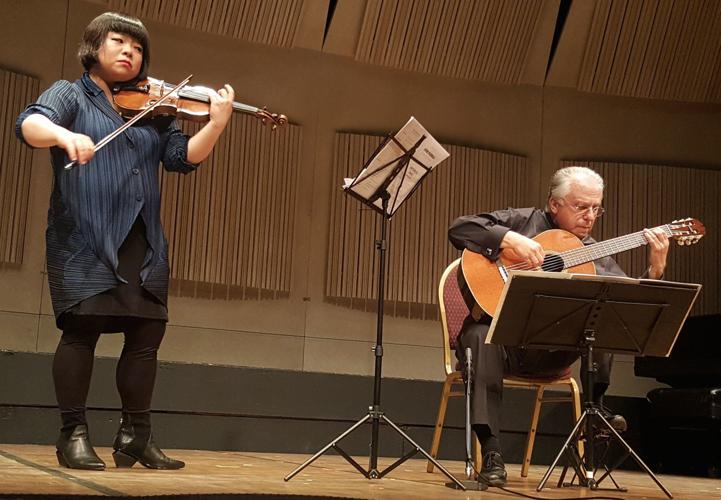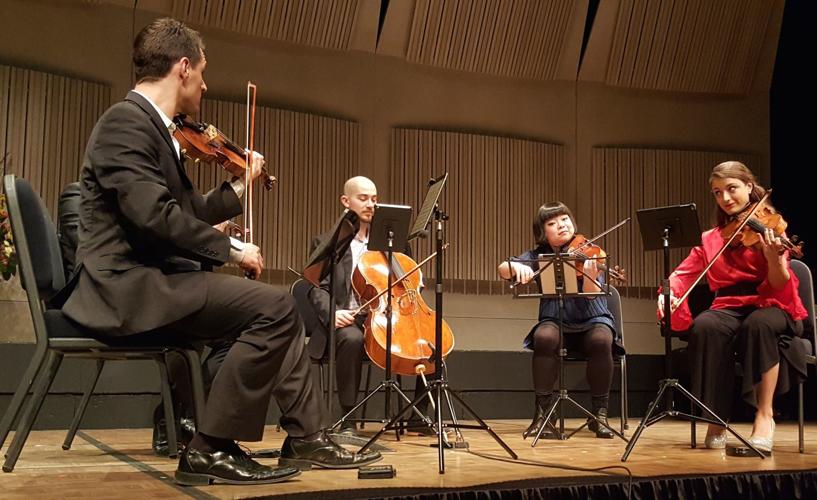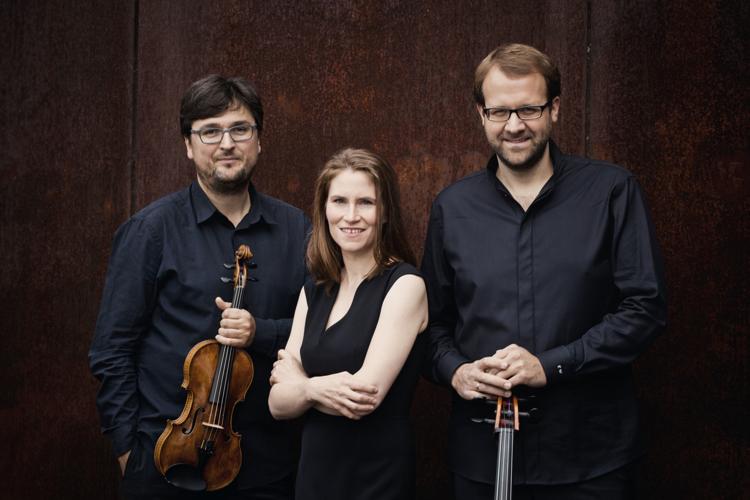Cables dangled in the light breeze as streetlights cast shadows on big gashes in the walls of La Placita Plaza Tuesday night, exposing the empty hull of what had long been УлшжжБВЅтs iconic colorful landmark.
The canvas-covered barricades with тDo Not Enterт warning signs completed the picture: The crumbling plaza looked like a scene out of a Third World war zone.
As the aged plaza meets the wrecking ball, Leo Rich Theater next door is coming to life this week with the 2018 УлшжжБВЅ Winter Chamber Music Festival.
On Tuesday night, several hundred people streamed past that dreary scene and into the small theater for the second concert in the УлшжжБВЅ Friends of Chamber Musicтs 25th annual festival.
Inside the concert hall, a roster of young, diverse musicians from around the globe took our minds off the outside world and the crumbling plaza that holds memories for so many УлшжжБВЅans.
People are also reading…
And they served to remind us that classical musicтs future is in good hands with the new generation of artists who arenтt afraid to challenge us to take a chance on contemporary music that might not fit so squarely in our round ears.
Take the opening work on Tuesdayтs program, Turkish composer Ilhan Baranтs modernist тTransformationт for Piano, Violin and Cello, performed by the critically acclaimed Morgenstern Trio from Germany.
It opens with pianist Catherine Klipfel playing a quiet, Romantically inclined passage that is interrupted by sharp dissonant notes that swell and overtake the quiet. Violinist Stefan Hempel interjected with a high-pitched screeching phrase that settled into a frenzied and altogether melodic Turkish folk romp duet with Klipfel.
The piece had flashes of dissonance inserted into some terrifically beautiful moments including the second movement cello solo played by the Morgensternтs Emanuel Wehse. Wehse is an intense musician who kept his eyes trained on the score as he played pizzicato, plucking out sharp notes that added a stark baritone voice to the musical dialogue.
Guitar giants the Romero Guitar Quartet т with Pepe, Celin, Celino and Lito Romero т brought some Spanish flair to the evening with a pair of Manuel de Fallaтs dances. Pepe Romero then joined Korean violinist/violist Yura Lee for a spirited performance of Argentinian Astor Piazzollaтs тHistoire du Tangoт for Violin and Guitar, one of the eveningтs highlights as the pair took us on a wonderful journey into Piazzollaтs world that included a stop in a frothy bordello, rediscovering romance at a streetside cafe and dancing a sweaty tango at a Buenos Aires nightclub. Watching the pairing of old school т the veteran Romero т and new т rising star Lee т play out with such brilliance was so much fun. The duo matched note for note, nuance for nuance in their inspired performance.
Other highlights of Tuesdayтs concert included Chamber Festival regular pianist Bernadette Harvey joining the exceptional French Canadian clarinetist Romie de Guise-Langlois for Bernsteinтs Sonata for Clarinet and Piano.
But arguably the star moment, the one that had the audience of 375 gasping тwowт and glued to their seats, was the spectacular Dover Quartet with Lee adding a second viola voice.
Having the Dover, a quartet of late twentysomethings who are on every criticsтs тDestined to Become One of the Greatsт list, share a top spot on the festival lineup with the Romeros and the Morgenstern is beyond our good fortune in УлшжжБВЅ. This is a dynamic young group that simply took our breath away with their performance of DvorУЁkтs String Quintet in E-flat Major that was punctuated by sublime playfulness, remarkable tonality and musical intelligence and passion that can only come from a place deep in the soul. Lucky us we got to slip into that place, even if it was only briefly.
The Dover Quartet will perform two works at 7:30 p.m. Friday, March 9, which also features the Romeros and the Morgenstern. All three groups join the rest of the lineup for the festival finale at 3 p.m. Sunday, March 11.












